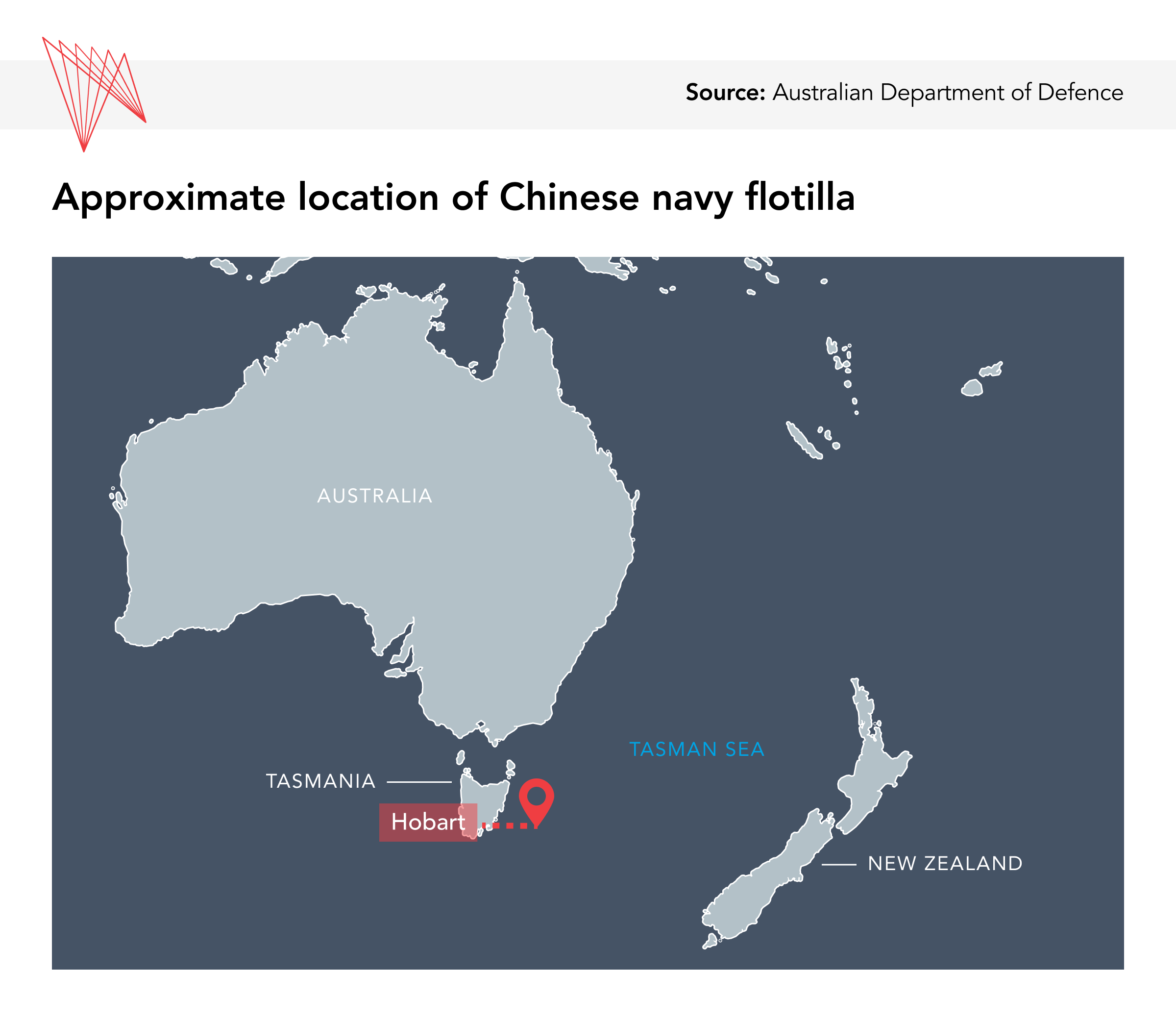A surprise live-fire drill conducted by China’s navy in international waters between Australia and New Zealand forced dozens of commercial flights to reroute on Friday and raised fresh questions about Beijing’s desire to stabilize relations with both countries.
China's military exercise in the Tasman Sea forced 49 commercial flights to alter their flight paths. Australia’s aviation authority said it found out about the drill 30 minutes after it began, tipped off not by Canberra or Beijing, but by a pilot flying towards the drill.
The Chinese navy flotilla in question — comprising a frigate, cruiser, and replenishment vessel — conducted a similar drill in international waters on Saturday. New Zealand’s defence minister called the drills "unprecedented."
The Chinese vessels re-entered Australia’s exclusive economic zone on Tuesday, according to the Australian Defence Force, and were spotted just 160 nautical miles east of Hobart, Tasmania, a distance roughly equivalent to the length of Lake Ontario.

Australian Prime Minister Anthony Albanese registered a formal diplomatic protest with Beijing, but emphasized in a statement that the drills did not violate international law. Conservative pundits and opposition politicians called his response “weak.”
The incident calls into question Albanese’s progress in “stabilizing relations” with China — a hallmark foreign policy pledge — and Beijing’s motivations for going ahead with the drills. The exercises underlined China’s impressive naval capabilities, projecting power and, possibly, irritation with Australia and New Zealand over, for example, recent joint drills around the South China Sea and Wellington’s interest in joining AUKUS.
Australia is set to hold a federal election on or before May 17. A poll conducted last week suggests the rival ‘Coalition’ — a long-standing partnership between the Liberal Party and National Party — would defeat Albanese’s Labor Party at the ballot box.
Luxon calls for calm
New Zealand Prime Minister Christopher Luxon echoed Albanese, telling reporters that, "there is nothing illegal here in terms of ... international law.” The issue, said Luxon, is the short notice, “particularly on what is a busy air route."
New Zealand’s foreign minister and deputy prime minister, Winston Peters, is expected to wrap a three-day trip to China today. On Wednesday, Peters discussedthe live-fire drills and a controversial recent deal between Beijing and the Cook Islands — an independent country in ‘free association’ with New Zealand, home to around 17,000 residents — with his Chinese counterpart, Wang Yi.
China has been New Zealand’s largest trading partner since 2017. Bilateral trade hit C$30.7 billion in 2023.
Tokyo, Manila look to defuse ‘increasingly severe’ environment
Japan and the Philippines, two countries that have raised concerns over China’s maritime conduct, took strides to strengthen bilateral co-operation earlier this week.
Japan’s defence minister, Nakatani Gen, met with his Philippine counterpart, Gilbert Teodoro, in Manila on Monday. The two ministers agreed to increase information-sharing and port calls, and start talks on how to better exchange confidential military information.
Teodoro said he sought to strengthen ties with Tokyo to deter “unilateral attempts by China and other countries to change the international order and the narrative.”
